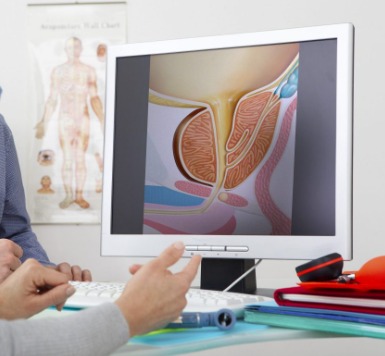In Traditional Chinese Medicine (TCM), the body is divided into three regions called jiaos: upper, middle, and lower. The prostate, while not specifically recognized, falls under the lower jiao, which is governed by the Kidneys and Liver.
(Kidneys and Prostate Health) Kidney Yang: Vital for creating and excreting urine.
Kidney Qi: Controls the opening and closing of lower gates (urethra, spermatic duct, anus). Weak Kidney qi can lead to issues like incontinence and weak urine flow.
Liver’s Role:
Stress and emotions can disrupt Liver qi, impacting the lower jiao and causing urinary dysfunction.
Bladder Qi and Blood Stagnation:
Impaired Bladder qi can lead to blood stagnation, which is linked to serious prostate conditions like stones and cancer.
Damp Heat:
Can be caused by infections or diet (spicy, fatty foods, and alcohol).
Leads to symptoms like painful urination, cloudy urine, and frequent urination.
Common issues found in prostate:
- BPH is a common condition, observed in 90% of men over 60, in which benign (non-cancerous) nodules cause an enlargement of the prostate gland. The cause is unknown. It can significantly affect quality of life by producing considerable discomfort during urination. The enlargement can mean the prostate expands from the size of a walnut to the size of an apricot or even a lemon.
- Prostatitis: Although some of the symptoms are similar prostatitis is different from BPH. Prostatitis can cause the prostate to become swollen, tender or inflamed. There are two main types: acute prostatitis and chronic prostatitis. Acute prostatitis is caused by an infection, usually by bacteria. Chronic prostatitis, also known as chronic pelvic pain syndrome, is a less well-defined condition.
- Prostate cancer: When it comes to their prostate health perhaps the biggest concern for most men is how they can reduce their risk of prostate cancer. Older men are at an increased risk of prostate cancer, especially if they have a family history and/or a higher prostate specific antigen (PSA) level. PSA is a protein made by the cells in the prostate.
Common Prostate symptom such as:
- Painful Urination Syndrome (lin zheng)
- Cloudy Urination (niao zhuo)
- Difficult Urination (long bi)
- Frequent Urination and Incontinence (yi niao)
- Hematuria (niao xue)
- Impotence (yang wei)
- Abdominal Pain (fu tong)
TCM practitioners aim to restore balance and improve prostate health through holistic approaches.
How TCM Can Help by using:
- Herbal Remedies such as
- Rehmannia (Di Huang): Nourishes Kidney yin and yang.
- Cornus (Shan Zhu Yu): Strengthens the Kidneys and controls leakage.
- Plantago Seed (Che Qian Zi): Clears damp heat and promotes urination.
- Acupuncture:
- Stimulates specific points to balance qi, improve circulation, and reduce inflammation.
- Common points include Ren-4 (Guanyuan) and SP-6 (Sanyinjiao) for lower jiao health.
- Dietary Adjustments:
- Avoid spicy, fatty foods, and alcohol to reduce damp heat.
- Incorporate cooling, hydrating foods like cucumber and watermelon
- Lifestyle Practices:
- Manage stress through practices like Tai Chi and Qigong.
- Ensure regular exercise to promote qi and blood circulation.

